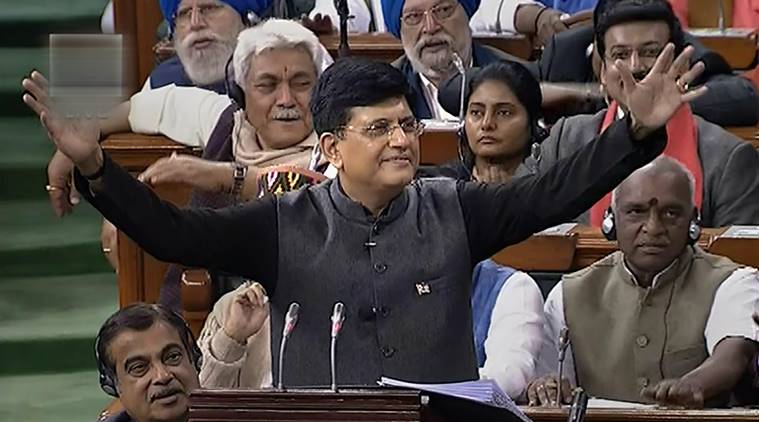Across the Aisle: An account for votes!
If Rs 17 per day or Rs 2,000 as the first instalment is not a sufficient poverty-alleviating measure, what is it? In plain and simple language, it is cash for votes.

A confident government would have let the Interim Budget be the non-event that it should be, but confidence is one quality that is in short supply in the present BJP-led NDA government. Just look at the lugubrious faces of the BJP members of Parliament, especially those from the states of Rajasthan, Madhya Pradesh, Chhattisgarh and Uttar Pradesh and you will agree with me. So, Prime Minister Modi decided that the occasion of presenting the Interim Budget will be converted into a significant event. The interim finance minister — like a player who has earned his first India cap — tried to convert it into a spectacle. The idea was to inject josh (spirit or enthusiasm) into the government’s swansong. The result, unfortunately, may be very different from what was intended by the Prime Minister and the interim finance minister.
The Brazenness
The promises have begun to unravel.
Let’s look at the Big promise of Rs 6,000 per year, in three instalments, to every farmer owning land of 2 hectares or less under a scheme called PM-KISAN. The government tried to pull the wool over the eyes of the Election Commission (EC) by making the scheme retrospective from December 1, 2018! How is that possible? Will the government credit the first instalment of Rs 2,000 into the farmer’s bank account retrospectively from December 1, 2018, and direct the banks to pay interest from that date? The EC may plead helplessness about the first instalment if it were disbursed before the Election Code kicked in, but, if the EC did not stop the second instalment, the people will conclude that another key institution has been undermined or taken over.
The Bribe
Now, to the merits of the PM-KISAN scheme: every marginal and small farmer — owning land of 2 hectares or less — is covered. That constitutes 86.2 per cent of the total agricultural holdings in the country. While who is covered is important, who is not covered is equally important
* The owner farmer, whether he is a cultivating farmer or an absentee landlord, is covered and will get the money; nThe tenant-farmer is not covered;
* The farm labourer is not covered;
* The non-farm rural poor, like petty shopkeeper, hawker, carpenter, goldsmith, hairdresser etc, are not covered;
* The urban poor are totally excluded.










.png)




























No hay comentarios:
Publicar un comentario